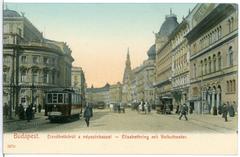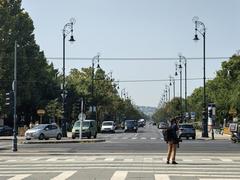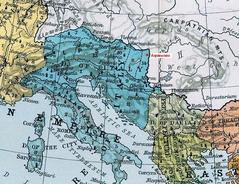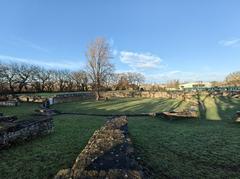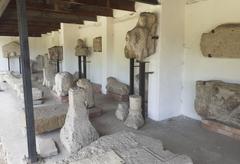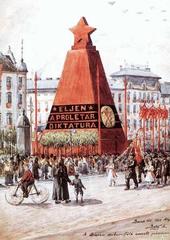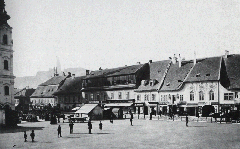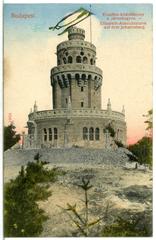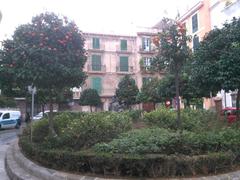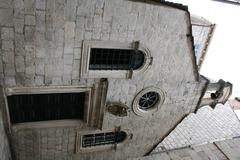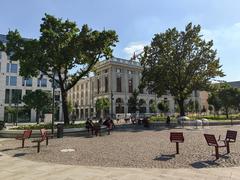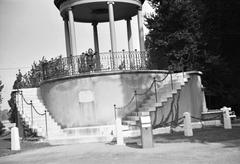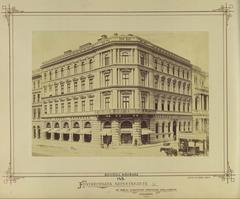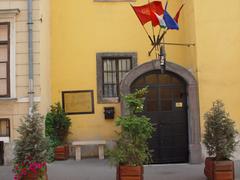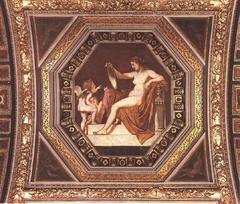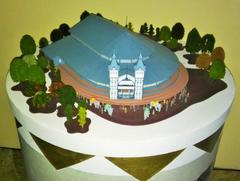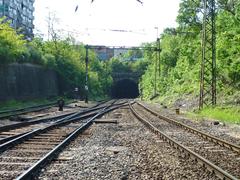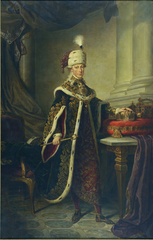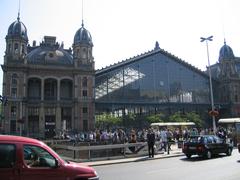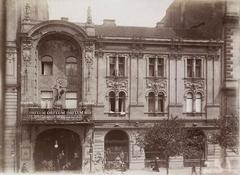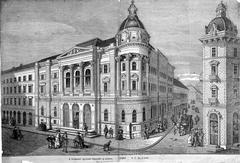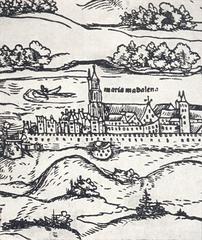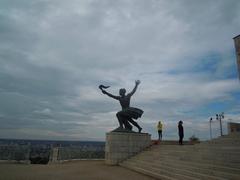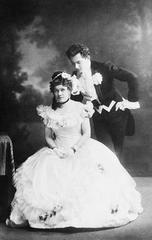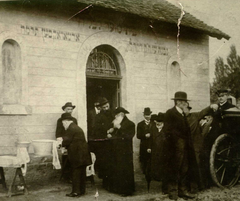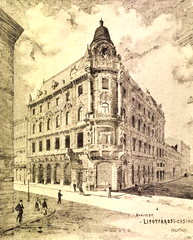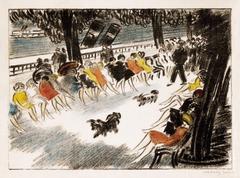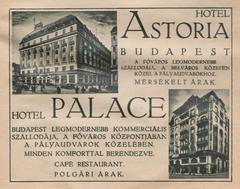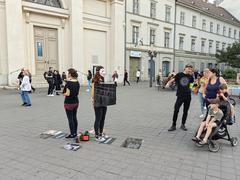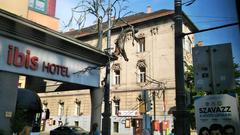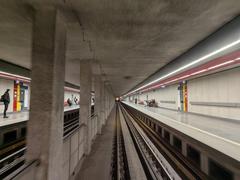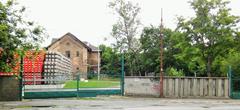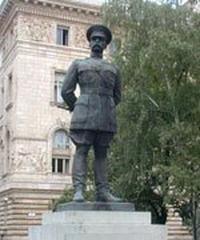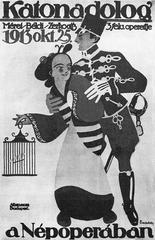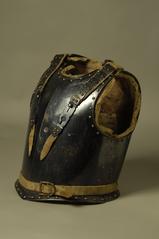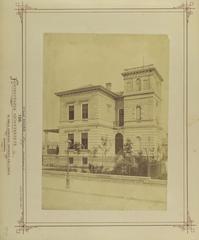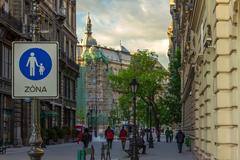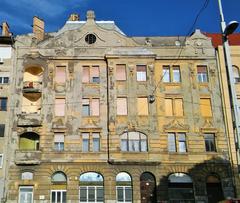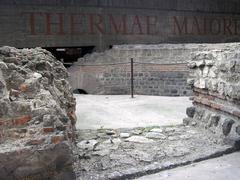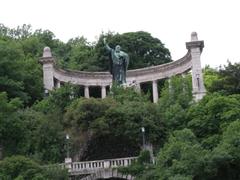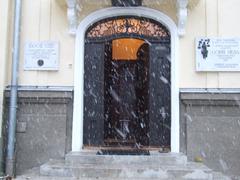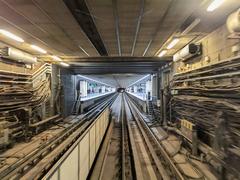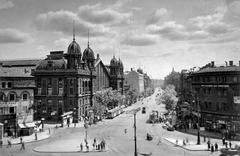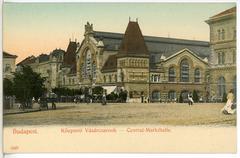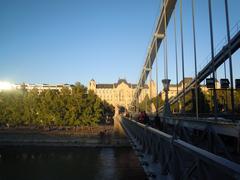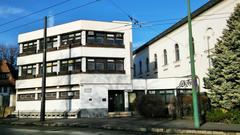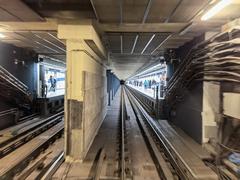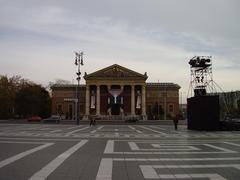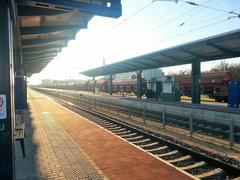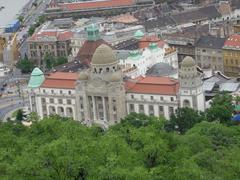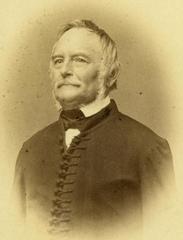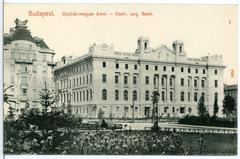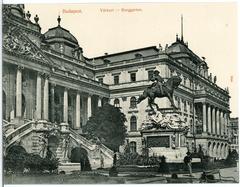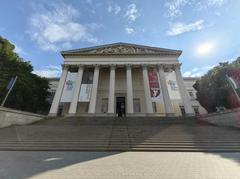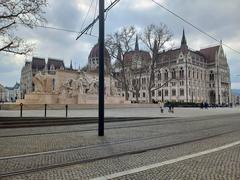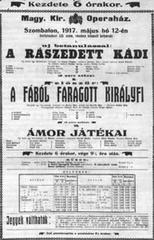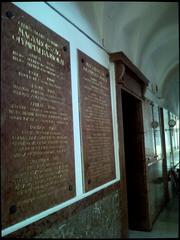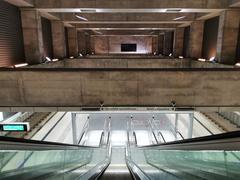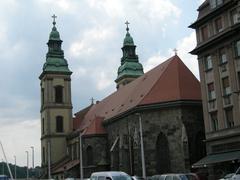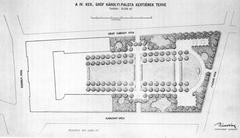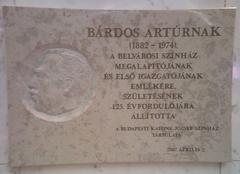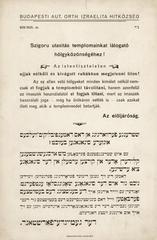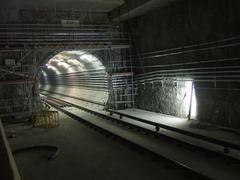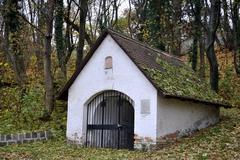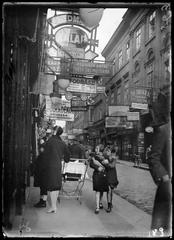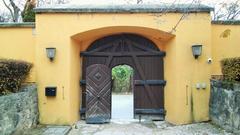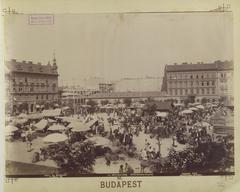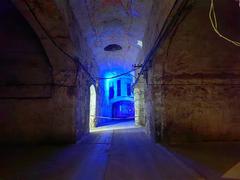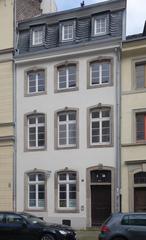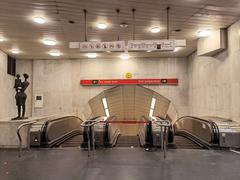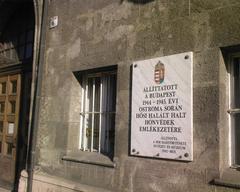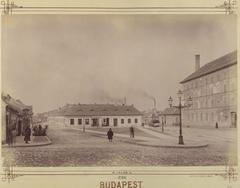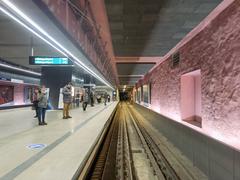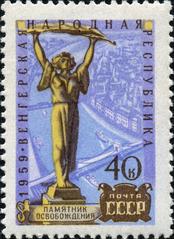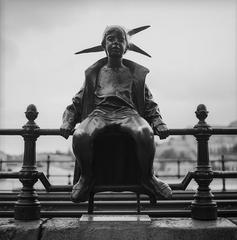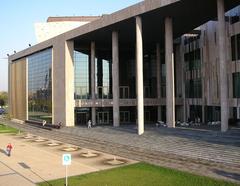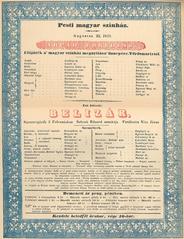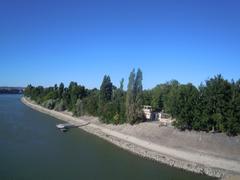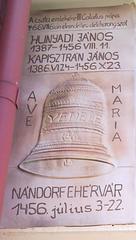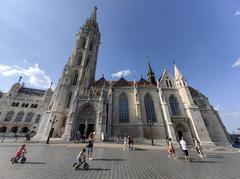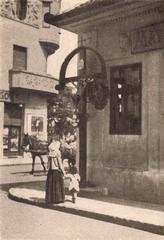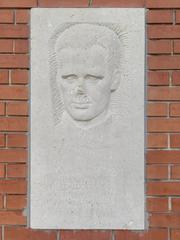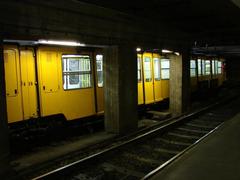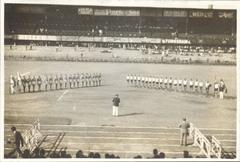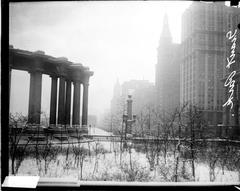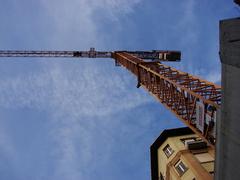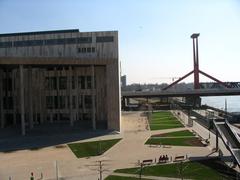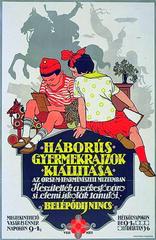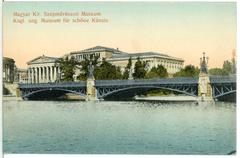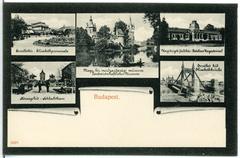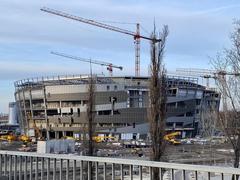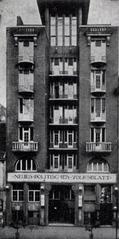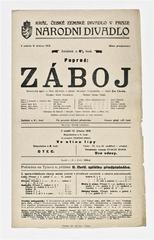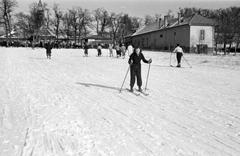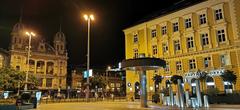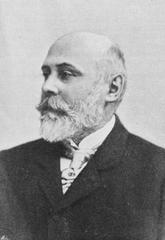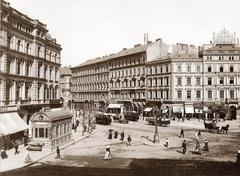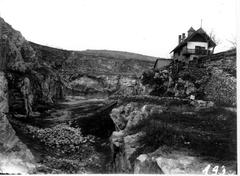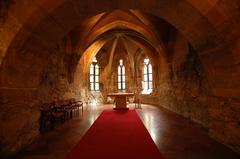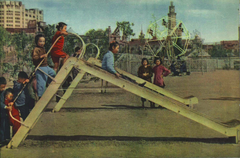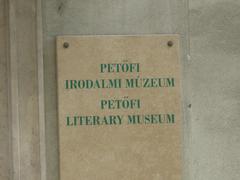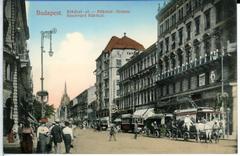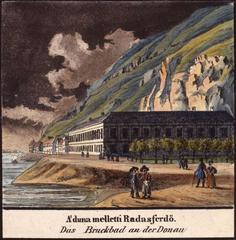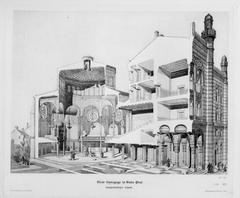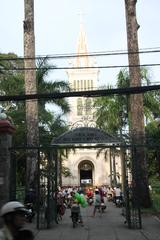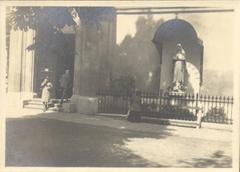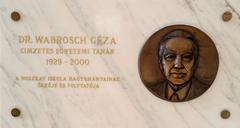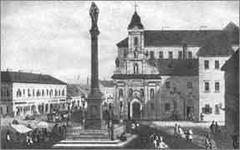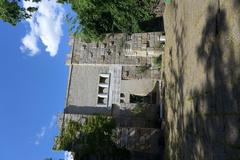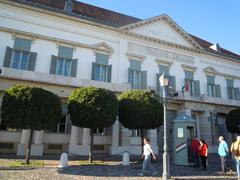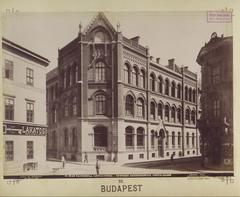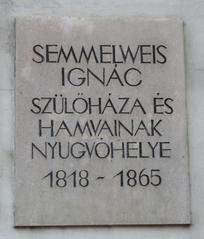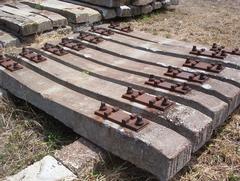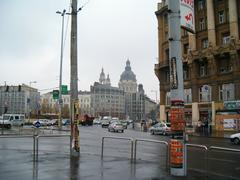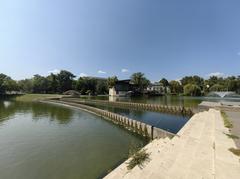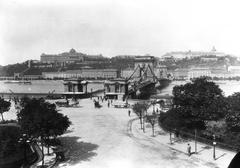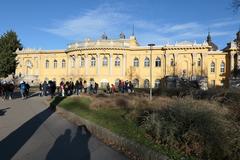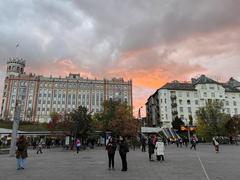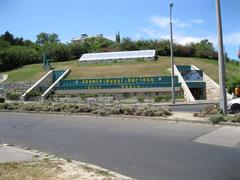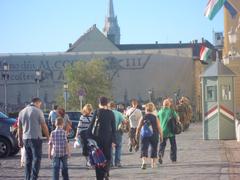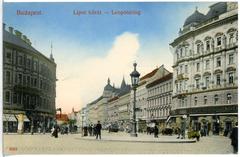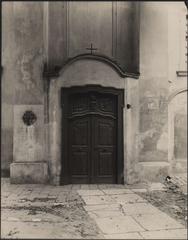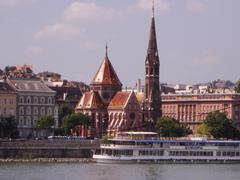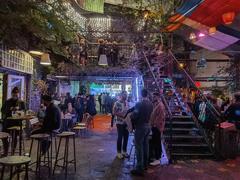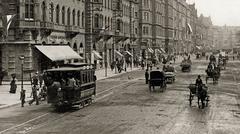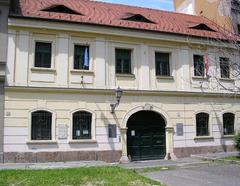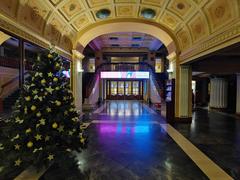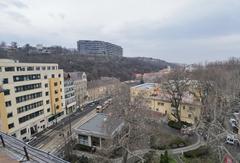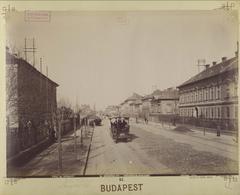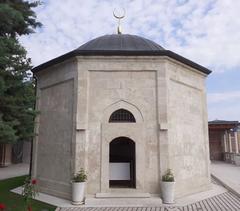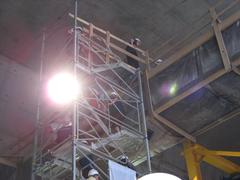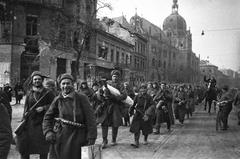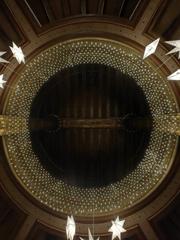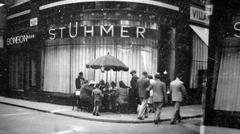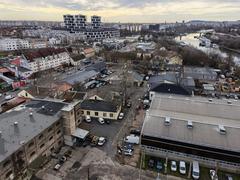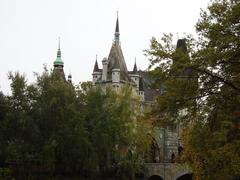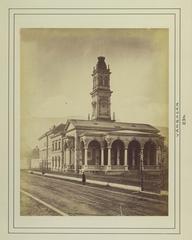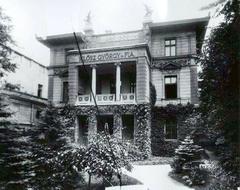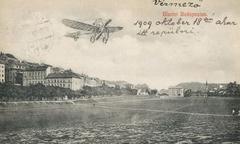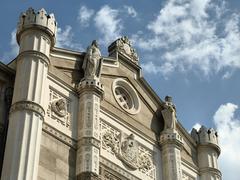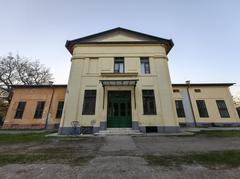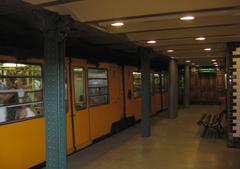Petőfi Theatre Budapest: Visiting Hours, Tickets, and Historical Sites Guide
Date: 04/07/2025
Introduction to Petőfi Theatre Budapest
Located in the heart of Budapest, the Petőfi Theatre is a celebrated cultural landmark, deeply connected to Hungary’s national heritage and vibrant performing arts scene. Named after Sándor Petőfi, the iconic 19th-century poet and revolutionary, the theatre stands as a testament to Hungary’s enduring spirit of independence and creativity. Its roots in the Hungarian Reform Era highlight its foundational role in shaping national identity and public discourse.
With architectural grandeur blending neoclassical and art nouveau influences, the theatre not only captivates with its design but also serves as a living monument to Hungary’s historical struggles and artistic achievements. Today, the Petőfi Theatre offers a dynamic program of classical Hungarian dramas, contemporary performances, and special events honoring the nation’s literary and cultural icons. This guide covers essential visitor information, including opening hours, ticket options, accessibility, and nearby attractions, making the Petőfi Theatre a must-visit for culture enthusiasts and tourists alike. Its central location, near major transport hubs and landmarks such as St. Stephen’s Basilica and Váci Street, ensures convenient access to Budapest’s rich cultural offerings (Petőfi Theatre Budapest: Visiting Hours, Tickets, and Historical Significance; Petőfi Theatre Budapest: Visiting Hours, Tickets, and Cultural Highlights; Petőfi Theatre Visiting Hours, Tickets & Tips for an Unforgettable Budapest Experience).
Table of Contents
- Introduction
- Origins and Early Development
- Architectural Evolution and Milestones
- Role in Hungarian Cultural and Political Life
- Notable Productions and Artistic Contributions
- Visiting the Petőfi Theatre: Hours, Tickets, and Accessibility
- How to Get There and Nearby Attractions
- Preservation and Modernization Efforts
- FAQs About Visiting the Petőfi Theatre
- Conclusion
Origins and Early Development
The Petőfi Theatre in Budapest, named after Sándor Petőfi, is a symbol of Hungary’s enduring commitment to the performing arts and national identity. Emerging during the 19th-century Hungarian Reform Era—a period marked by cultural renewal and the pursuit of national consciousness—the theatre reflects Budapest’s transformation into a modern European capital. During this era, the arts, especially theatre, played a central role in fostering public dialogue and shaping the Hungarian spirit (Budapest History Facts and Timeline).
Honoring Sándor Petőfi is significant not only for his literary achievements but also for his role as a revolutionary and inspiration during the 1848 Revolution. The establishment of a theatre bearing his name pays tribute to his legacy and highlights the arts as a powerful vehicle for national expression (Sándor Petőfi: The Building of a Hungarian Legend).
Architectural Evolution and Milestones
The architectural history of the Petőfi Theatre mirrors Budapest’s urban development. Early theatres were often simple wooden structures, but by the turn of the 20th century, purpose-built venues like Petőfi Theatre showcased the city’s prosperity and cultural aspirations. The theatre features neoclassical and art nouveau elements, characteristic of Budapest’s public buildings from that era, embodying both elegance and modernity (Timeline of Budapest).
Renovations and reconstructions over the decades have modernized the theatre’s facilities while preserving its historical character, ensuring it remains a central hub for drama, music, and cultural gatherings.
Role in Hungarian Cultural and Political Life
Beyond its function as an entertainment venue, the Petőfi Theatre has played a significant role in shaping Hungarian identity and political thought. During the Austro-Hungarian Empire, theatres like Petőfi became vital spaces for the flourishing of the Hungarian language and culture, often resisting policies of censorship and Germanization. Productions frequently drew upon historical events, folk traditions, and literary figures such as Petőfi, reinforcing national pride (Budapest History Facts and Timeline).
The theatre’s cultural significance grew during periods of political change, particularly during the 1848 Revolution, when performances resonated with themes of independence and reform. Despite challenges throughout the 20th century, the theatre continued to serve as a platform for artistic expression and subtle social critique, especially during times of censorship.
Notable Productions and Artistic Contributions
The Petőfi Theatre has hosted a rich array of productions, from classic Hungarian dramas and adaptations of Petőfi’s poetry to innovative contemporary works. It has been instrumental in launching the careers of prominent actors, directors, and playwrights. The theatre also supports music and dance collaborations, often partnering with other cultural institutions in Budapest.
Commemorative events, such as those celebrating Petőfi’s birth and the anniversaries of the 1848 Revolution, reinforce the theatre’s role as a focal point for national remembrance (Petőfi Literary Museum).
Visiting the Petőfi Theatre: Hours, Tickets, and Accessibility
Visiting Hours: The theatre is typically open Tuesday to Sunday, 10:00 AM to 6:00 PM, with evening performances generally starting at 7:00 PM. For the latest schedules, always check the official website.
Tickets: Purchase tickets online via the official Petőfi Theatre site, at the box office, or through authorized vendors. Ticket prices usually range from 1,500 to 6,000 HUF, with discounts for students, seniors, and groups.
Accessibility: The theatre is committed to accessibility, offering wheelchair access, assistive listening devices, and reserved seating for guests with disabilities. For special accommodation requests, contact the theatre ahead of your visit.
Guided Tours and Events: Guided tours are available, providing insights into the theatre’s history, architecture, and backstage areas. Special events and workshops are also held throughout the year.
How to Get There and Nearby Attractions
The Petőfi Theatre’s central location makes it easily accessible by public transport. The nearest metro stop is Deák Ferenc tér (Lines M1, M2, M3), with multiple tram and bus routes close by.
Nearby Attractions:
- St. Stephen’s Basilica: A short walk from the theatre, this landmark offers stunning city views.
- Váci Street: Budapest’s renowned shopping avenue, filled with cafes and boutiques.
- Hungarian National Museum: A major historical site within easy reach, perfect for those interested in Hungary’s past.
Visiting these attractions alongside the theatre creates a well-rounded cultural itinerary.
Preservation and Modernization Efforts
Ongoing restoration projects have preserved the theatre’s architectural beauty while updating its facilities for modern audiences. These initiatives have improved comfort, accessibility, and technical capabilities, ensuring the theatre remains a vibrant center for the arts.
Community outreach programs, educational workshops, and partnerships with schools continue to foster a love for the arts among younger generations (Müpa Budapest: Petőfi & Co.).
FAQs About Visiting the Petőfi Theatre
Q: What are the Petőfi Theatre’s opening hours?
A: Typically Tuesday to Sunday, 10:00 AM–6:00 PM, with evening shows at 7:00 PM. Check the official site for updates.
Q: How can I purchase tickets?
A: Tickets are available online, at the box office, or through authorized vendors.
Q: Is the theatre accessible to people with disabilities?
A: Yes, it offers wheelchair access and other accommodation options.
Q: Are guided tours available?
A: Yes, guided tours explore the theatre’s history and architecture.
Conclusion
The Petőfi Theatre Budapest is more than a historical monument—it is a living symbol of Hungary’s cultural resilience and artistic vitality. Whether you are a history enthusiast, theatre lover, or casual visitor, you will find the theatre offers an immersive experience that connects past and present. Plan your visit to delve into Budapest’s rich cultural heritage and the vibrant world of Hungarian performing arts.
For the latest information on tickets, visiting hours, and special events, visit the official Petőfi Theatre website.
Additional Resources
- Petőfi Theatre Budapest: Visiting Hours, Tickets, and Historical Significance
- Petőfi Theatre Budapest: Visiting Hours, Tickets, and Cultural Highlights
- Petőfi Theatre Visiting Hours, Tickets & Tips for an Unforgettable Budapest Experience
- Budapest History Facts and Timeline
- Sándor Petőfi: The Building of a Hungarian Legend
- Timeline of Budapest
- Petőfi Literary Museum
- Müpa Budapest: Petőfi & Co.
- Budapest by Locals
